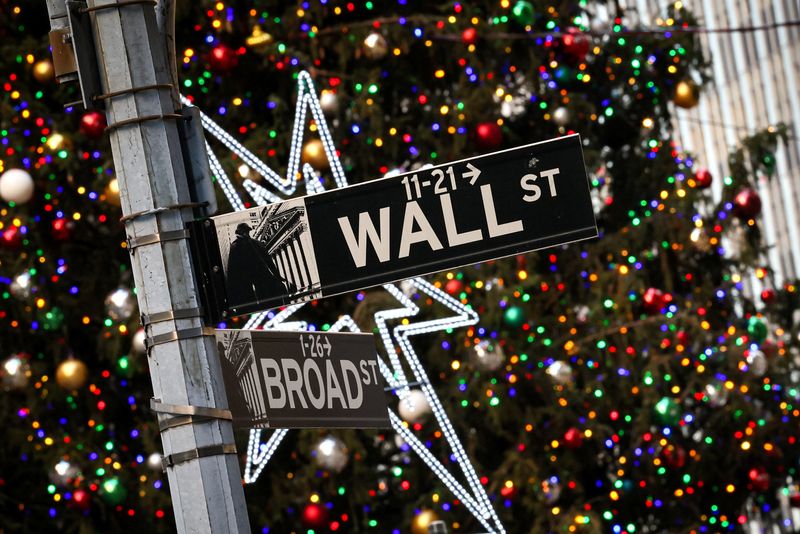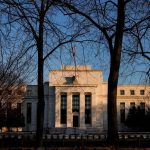
(Reuters) – U.S. stock index futures remained subdued ahead of Tuesday’s shortened trading session, with Wall Street entering a historically strong period before rounding off its second consecutive year of gains.
Few major catalysts are expected to drive market sentiment, with trading volumes expected to be light in the final days of the year, raising the prospect of choppy trading.
Stock markets will shut at 1:00 p.m. ET on Tuesday and will be closed for Christmas on Wednesday.
At 05:15 a.m., Dow E-minis were up 12 points, or 0.03% and S&P 500 E-minis were up 7 points, or 0.12%, and Nasdaq 100 E-minis were up 38.25 points, or 0.18%.
After a stellar run to record highs following an election that sparked hopes of pro-business policies under U.S. President-elect Donald Trump, Wall Street’s rally hit a bump this month as investors grappled with the prospect of higher interest rates.
The U.S. Federal Reserve eased borrowing costs for the third time this year last Wednesday, but signaled only two more 25-basis-point reductions in 2025, down from its September projection of four cuts, as policymakers weigh the possibility of Trump’s policies stoking inflation.
Traders expect the Fed to leave rates in the range of 4% to 4.25% by the end of 2025, from between 3.75% and 4% about 10 days ago, according to CME’s FedWatch tool.
Markets are currently in a historically strong period called the “Santa Clause rally”. The S&P 500 on average has gained 1.3% in the last five days of December and first two days of January, according to data from the Stock Trader’s Almanac going back to 1969.
However, market participants are questioning if U.S. stocks’ climb to new record highs will materialize in the coming days, amid concerns about the health of the market under the surface and sky-high valuations.
The benchmark S&P 500 fell about 1% in December but the equal-weight S&P 500, a proxy for the average index stock, is down 5.8%.
“Expensive/unprofitable growth stocks and low-quality cyclicals appear to be the most vulnerable to potentially higher-for-longer interest rates and less liquidity,” Michael Wilson, equity strategist at Morgan Stanley (NYSE:MS), said in a note.
The S&P 500 and the Nasdaq notched two consecutive sessions of gains on Monday, helped by gains in a handful of megacap and growth companies.
Among individual stocks, U.S. Steel fell 2.3% in premarket trading as Nippon Steel’s $15-billion bid for the company has been referred to U.S. President Joe Biden, who has long opposed the tie-up.






